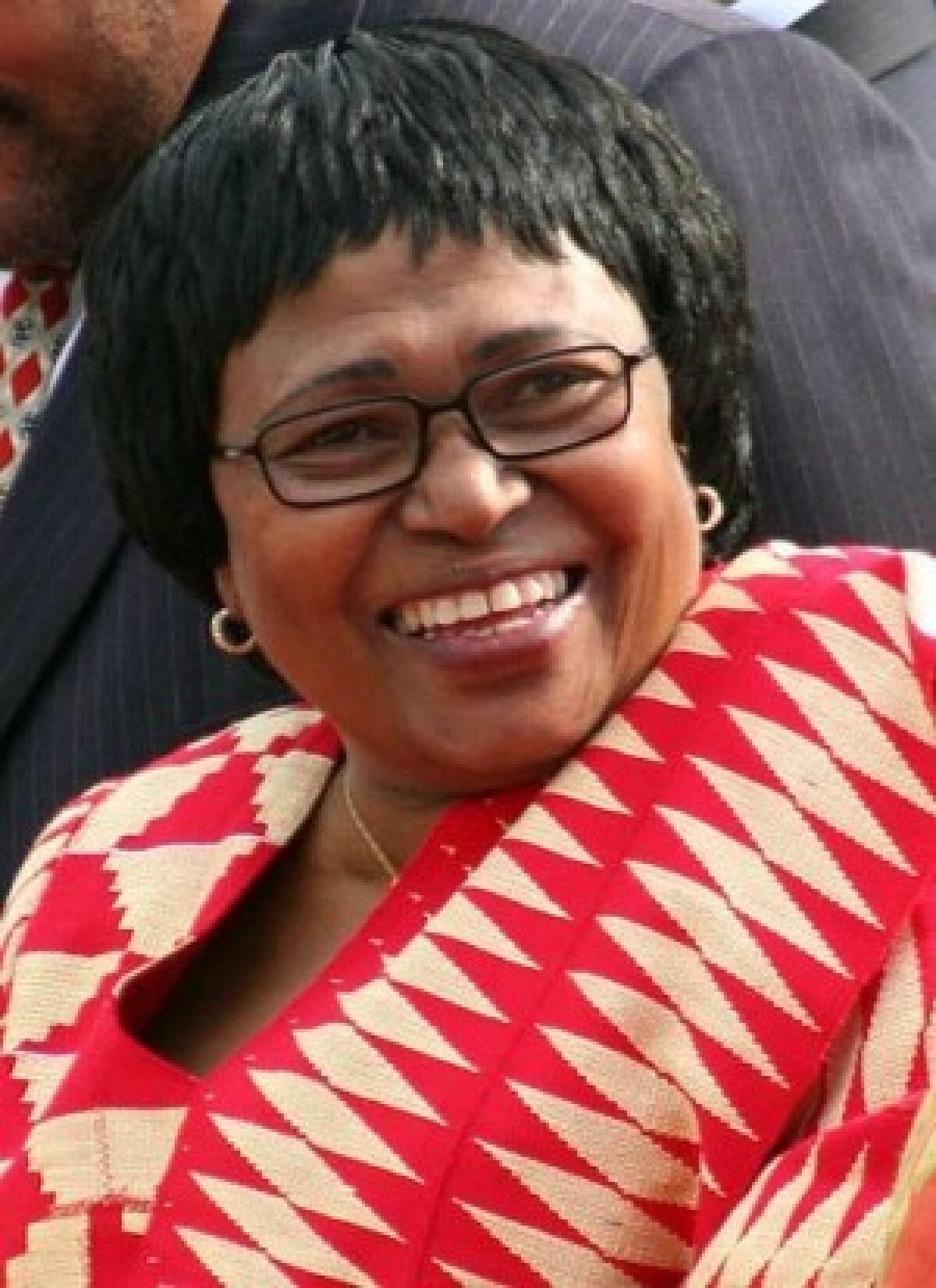Dr. Manto Tshabalala-Msimang dies at 69; South African health minister denied HIV causes AIDS

Dr. Manto Tshabalala-Msimang, the former South African health minister whose AIDS denial and failure to provide treatment is blamed for more than 300,000 unnecessary deaths in the country that has suffered the brunt of the AIDS pandemic, died Wednesday in a Johannesburg hospital from complications of a 2007 liver transplant. She was 69, and press reports suggested that she was being tested for a second transplant.
Like her close friend and frequent defender, former President Thabo Mbeki, Tshabalala-Msimang did not believe that HIV causes AIDS and did not believe in using antiretroviral drugs to treat the disease, instead urging victims to use a concoction of fruits, vegetables and herbs -- which won her international derision as “Dr. Beet Root” or “Dr. Garlic.”
Dr. Stephen Lewis, the former United Nations envoy for AIDS in Africa, sharply criticized the AIDS policies of Mbeki and Tshabalala-Msimang in a 2006 speech in Vancouver, Canada, calling it “more worthy of a lunatic fringe than of a concerned and compassionate state.” The Treatment Action Campaign called her a “murderer” and fought many legal battles attempting to reverse her refusal to provide treatment for the country’s 5.7 million HIV-positive people (out of a population of about 50 million).
Activists won a major victory in 2002 in a court case that forced the government to provide antiretroviral drugs to pregnant women to prevent transmission of the virus to their infants. Another decision in 2003 forced the government to provide drugs to people in advanced stages of AIDS.
Even her critics conceded that she made some positive contributions, including improving health services in rural areas and forcing down the price of medicines. She also attempted to halt the flight of newly trained doctors and nurses abroad and played a key role in the creation of a global anti-tobacco treaty.
Mantombazano “Manto” Edmie Tshabalala was born in the village of Emfume near Durban on Oct. 9, 1940. After she completed her bachelor’s degree at Fort Hare in 1962, she was one of 28 students forced into exile because they had been singled out for their leadership potential in opposition to the white minority government. It was during exile that she formed her lifelong bond with Mbeki, who consistently supported her despite repeated calls for her ouster.
She received her medical degree from the First Leningrad Medical Institute in 1969 and a master’s degree in public health from the University of Antwerp in Belgium in 1980, then worked at hospitals in Botswana and Tanzania before returning to South Africa in 1990 as apartheid was disintegrating.
She was elected to parliament in 1994 and appointed justice minister in 1996 and health minister in 1999.
FOR THE RECORD:
An earlier version of this article said that Dr. Manto Tshabalala-Msimang was appointed justice minister in 1986 and health minister in 1989.
Mbeki was forced to resign by the African National Congress in September 2008. When his successor, Kgalema Motlanthe, took office soon after, he moved Tshabalala-Msimang to the post of Minister in the Presidency. When Jacob Zuma was elected president this year, he did not include her in his cabinet. Earlier this month, he said anti-HIV drugs would become more widely available in the country.
She was married to Mendi Msimang, a former treasurer of the African National Congress, and had two daughters.
More to Read
Start your day right
Sign up for Essential California for news, features and recommendations from the L.A. Times and beyond in your inbox six days a week.
You may occasionally receive promotional content from the Los Angeles Times.






